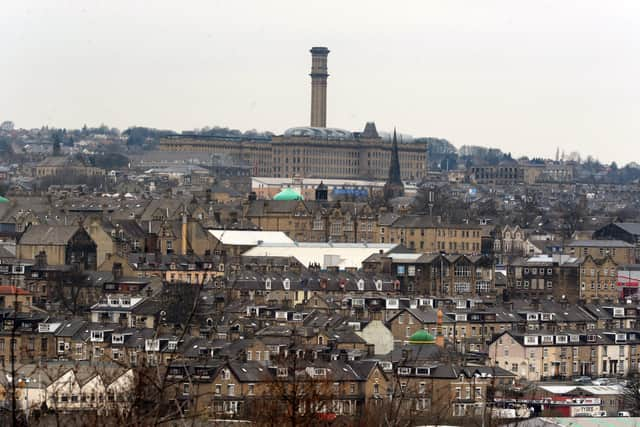Low attendance in schools could prove to be a demographic headache for Bradford - David Behrens
That at least is the popular perception of education in Britain today. But in one part of Yorkshire the statistics tell a different story.
Bradford is fond of promoting itself as Britain’s youngest city, on the basis that it has a higher proportion of children than anywhere else – but this week came the startling news that fully a third of those young people don’t regularly go to school.
Advertisement
Hide AdAdvertisement
Hide AdThe council’s “children’s services scrutiny committee” heard that one child in three is classified as persistently absent, meaning they are away for at least 10 per cent of the time. Bradford’s assistant director for schools admitted that some of the absences were “fairly extreme”. And while there will sometimes be legitimate reasons, most kids will be able to ascribe their lack of attendance only to lethargy on the part of their parents and themselves.


The figures are more alarming still when you consider that Bradford’s under-16s make up more than a quarter of the entire population. You don’t need to attend maths classes to work out the economic consequences of releasing so many unemployable young people into the jobs market.
The figures seem revelatory but they are well known to those in charge of the city’s schools. So what are they doing to better enforce the law that requires parents to send their children to lessons every day, not just when they feel like it? Surprisingly little, it transpires.
That same scrutiny committee was told this week that a five-year plan to boost education standards across the city had been mostly abandoned because of budget constraints. It was supposed to encourage children to study the already-mandated subjects of maths and English, so it was a low bar anyway. But it’s being wound up in July.
Advertisement
Hide AdAdvertisement
Hide AdThe committee, as you might imagine, was not best pleased at this development, which its members suggested had been taken without much actual scrutiny. One councillor doubted that the cost had been budgeted in the first place, which makes one wonder if the schools department knows any more about maths than its pupils.
A direct consequence of the state of education in the city is the antisocial behaviour that blights its streets. It’s been called the single biggest barrier to levelling-up communities.
It takes many forms. Last autumn, another group of Bradford councillors heard that using soft drugs like cannabis and laughing gas had become “the norm” for young people in some areas, and that the number of drug-related crimes had risen by nearly a quarter since before the pandemic. In the first nine months of last year police uncovered no fewer than 230 cannabis farms across the district, which means it now has more drug dens than fish and chip shops.
Does anyone think properly educated young people are responsible for this? Of course not; they took flight long ago, leaving ghettos where once there were communities. Next to this, Happy Valley looks like Hampstead Garden Suburb.
Advertisement
Hide AdAdvertisement
Hide AdIt’s unfair to dump all the blame on the council’s doorstep; society is entitled to expect parents to take some responsibility. But that isn’t always possible and Bradford’s problem is that when families break down there’s no-one to step up.
Last month, Ofsted rated the city’s children’s services “inadequate” for the second time in four years, saying the experience of many youngsters had declined even further since then. The council was told a year ago that it would be stripped of control but in the meantime it has been spending more than £2m a month on agency staff because trained caseworkers don’t seem to want to go there. I don’t blame them; social workers are caught between a rock and a hard place at the best of times, let alone times like these.
The one positive development – and not from the council – was Monday’s announcement that the music industry’s ‘Brit School’ for talented performers and technicians will set up a new offshoot in Bradford. The original school in Croydon turned out Adele and Amy Winehouse and its northern counterpart would bring opportunities to under-served 16-19 year-olds, said its organisers.
Nothing wrong with that, except that to be eligible you need to have been through normal school first – a criteria that excludes one in three of Bradford’s teenagers. What is to become of them? What’s the point of being in Britain’s youngest city if all you can do there is stagnate and grow old?